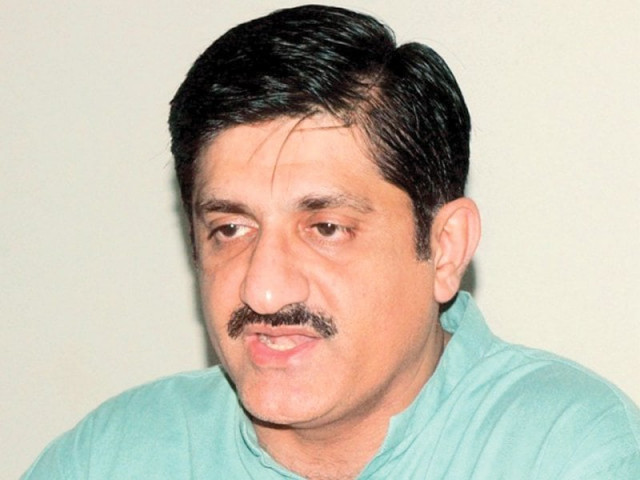Sindh CM wants 13 taluka hospitals upgraded before 2019
Orders grant of hard area allowance to doctors serving in remote areas

Murad Ali Shah. PHOTO: EXPRESS
The CM issued these directives on Wednesday while presiding over a meeting of the health department at CM House.
According to Shah, he had achieved some positive results from the health emergency he had imposed during his last tenure. "We have to continue our efforts in a more effective way to improve health services, capacity building of doctors and medical education system," he said.
Murad Ali Shah scorns Shehbaz's promises for Sindh
Briefing the CM, Health Secretary Dr Usman Chachar said there was a sanctioned strength of 67,876 doctors and paramedic staff in the health department against which 62,569 doctors and paramedic staff were working and 5,307 posts were vacant.
The vacant positions included 2,929 posts for doctors of general cadres, 492 for doctors of specialist cadre, 129 for dentists, 10 for pharmacists, nine for drug administration, 210 for nurses, 1,214 for paramedics and 1,295 for lady health workers. The CM directed the health department to fill the vacant posts so that under-construction health facilities could be operationalised.
The meeting was informed that 17 taluka headquarter hospitals were being upgraded to the DHQ level. The hospitals are located in Tando Muhammad Khan, Tando Allahyar, Jamshoro, Khairpur, Badin, Shikarpur, Mithi, Thatta, Dadu, Naushero Feroz, Mirpurkhas, Sanghar, Mirpur Mathelo, Matiari, Kamber-Shahdadkot, Umerkot and Kashmore. Shah directed the health secretary to expedite the construction work at the hospitals.
It was pointed out that there were 2,06 primary health facilities in Sindh that included 138 rural health centres, 810 basic health units, 883 dispensaries, 89 mother and child health centres, two Homoeopathic dispensaries, eight urban health centres, 44 Unani shifa khanas, 42 maternity homes. The CM was informed 163 basic health facilities were being operated under public private partnership.
Regarding higher level healthcare facilities in the province, the CM was informed that of 109 secondary and tertiary healthcare facilities in Sindh, 95 were being run by the health department, while 14 were being managed through public private partnership.
Murad Ali Shah gets second term to rule Sindh
The meeting was briefed that there were 75 government institutions of medical education in province that included five universities, eight colleges, four dental colleges, 21 nursing schools, five public health schools, 16 community midwifery schools, two nursing colleges, four paramedical institutes, one physiotherapy school, two health technicians schools and seven other institutes like the National Institute of Cardiovascular Diseases.
Dr Chachar informed the meeting that 12 projects were in progress in the health sector. They included programmes for tuberculosis control, maternal and child neonatal health, prevention and control of blindness, dengue and hepatitis, and others. Health Minister Dr Azra Pechuho informed the meeting that she was monitoring all the health programmes. Shah asked the health department to update him weekly about progress on these programmes.
It was also pointed out that doctors were reluctant to serve in remote areas. To this the, CM directed the health department to approve hard area allowance for doctors serving in remote areas. Doctors serving in Thar are already receiving the allowance.
The CM remarked that health was one of the top priorities of the government and the health sector was allocated heavy funds in the budget. "Therefore, its results should be in accordance with the investment," he said.
The meeting was also attended by Chief Secretary Major (retd) Azam Suleman, Planning and Development Board Chairperson Mohammad Waseem, Principal Secretary to CM Sohail Rajput, Finance Secretary Noor Alam and other officers.



















COMMENTS
Comments are moderated and generally will be posted if they are on-topic and not abusive.
For more information, please see our Comments FAQ